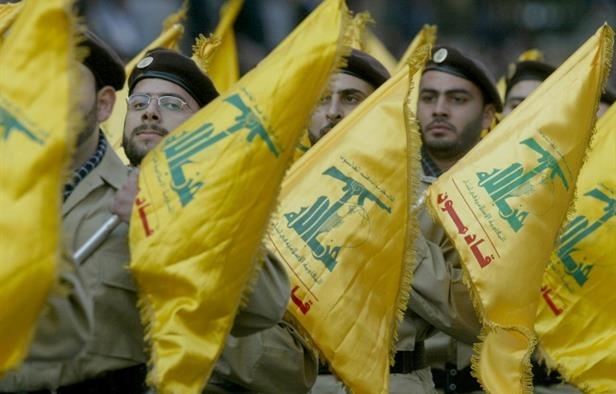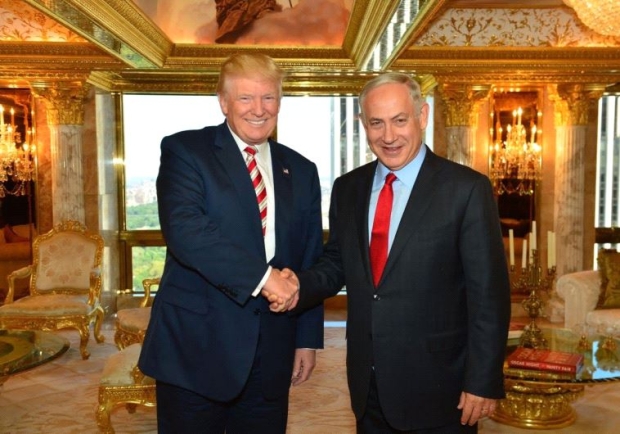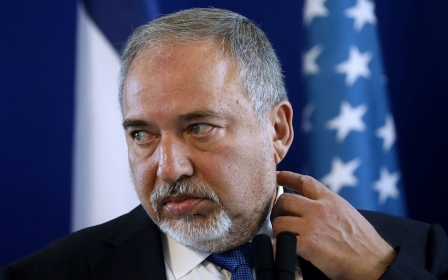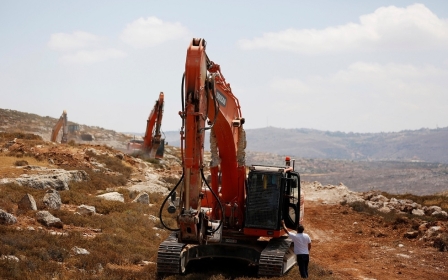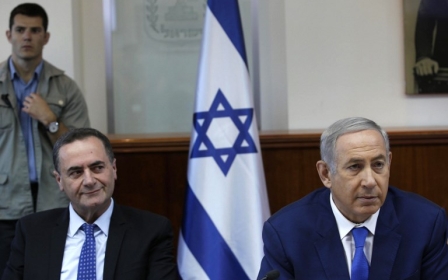10 things we learned from Israel's Herzliya conference on security

Better relations with Saudi. What Mahmoud Abbas really wants. And the threat raised by "Hezbollastan".
These were some of the subjects covered by this year's Herzliya conference, organised by the Israeli Institute for Policy and Strategy. The event has an ongoing remit of supporting the "formation of a grand strategy for Israel and the region". This year it took as its theme “Israel’s strategic balance: opportunities and risks”: here's a quick roundup of some of the key ideas covered.
1. Israel should make sweet with Arab Sunni states
Gilad Arden, public security minister of Israel, said that there was an “historic opportunity to create a new coalition between Israel, other western countries and the Arab-Sunni states based on common interests”.
The alliance was brought up repeatedly during the conference. Moshe Ya’alon, former Israeli minister of defence, claimed that “the phrase Israel-Arab conflict isn’t relevant any more” as Israel was no longer in conflict with the Arab Sunni camp.
Herzi HaLevi, chief of the IDF military intelligence directorate, said that the “mutual interests between Israel and the pragmatic Sunni state have substantially grown”.The remarks all echoed a press conference given by US Secretary of Defence James Mattis in April, when he said that the alliance between Washington and Israel is “the cornerstone of a wider, regional, security architecture that includes cooperation with Egypt, Jordan, Saudi and our partners in the Gulf".
2. Saudi, come visit Israel
Several senior Israeli ministers, including Israel's defence minister, Avigdor Lieberman, called on Saudi Arabia’s King Salman to establish full diplomatic relations with the state.
Intelligence and Transportation Minister Yisrael Katz asked Salman to invite Israeli Prime Minister Benjamin Netanyahu to Riyadh and, in return, send newly appointed Crown Prince Mohammed bin Salman to Tel Aviv.
"We saw what a wonderful host you can be... when President Trump was there," said Katz, referring to the US presidential visit in May.
"You can also send your heir, the new one, Prince Mohammed bin Salman. He's a dynamic person. He is an initiator. And he wants to break through."
3. What is Hezbollastan?
The biggest danger to Israel is the potential threat on its northern borders, according to several speakers at the conference.
Moscow, said Gilad, had taken a “strategic decision to support this alignment". He warned against a potential future war on Israel’s northern borders led by Hezbollastan and financially backed by the Kremlin.
4. Let’s give thanks to Sisi
Gilad also praised efforts by Egyptian President Abdel Fattah el-Sisi to clamp down on the Muslim Brotherhood.
Amos said that he himself is not religious "but is starting to believe more and more in miracles” as Sisi could not have found a better way to help Israel, which he says is threatened by the Brotherhood.
Sisi ousted then-Egyptian president Mohamed Morsi of the Muslim Brotherhood in 2013 and has targeted the movement, which he regards as his political nemesis, ever since. Palestinian movement Hamas, which controls Gaza, is considered a daughter movement of the Brotherhood.“If a coalition had been formed between the Brotherhood in Egypt and the Turkish government, we’d be in a totally different situation for the worse,” Gilad said.
5. We need to talk about Palestine
Several speakers stressed the need to address the Palestinian question so an Israel-Sunni Arab alliance could be publicly normalised.
Tony Blair, former prime minister of the UK, said: “It is no great state secret to say that forms of cooperation taking on security measures take place already, but the key to a true relationship… above the table and not below the table, that key remains the Palestinian question.”6. Status quo instead of settlement
But what kind of shape would an Israeli-Palestinian solution take? Some speakers suggested it was in Israel’s interest to maintain a “status quo” of calm instead of a permanent settlement.
Meanwhile Halevi said that in the past a permanent solution was considered an achievement, but now “the motive is interests, the method is ad-hoc coalitions, and the greatest aspiration we can talk about is reaching dynamic stability.”
Naftali Bennett, Israeli minister of education, added that “when something is unsolvable, you need to manage it”.
7. It’s the economy
Israeli minister of finance, Moshe Kahlon, said he has been working to strengthen economic ties between Israel and the West Bank. “It’s not two economies but one, it’s the same currency (shekel), the same import and export rate… there has been good cooperation for the past two years.”
He had also touched on the Gaza electricity crisis: the Palestinian Authority has asked Israel to cut the amount it supplies to the territory, controlled by its rivals Hamas.Israel will reduce electricity supplies to the Gaza Strip after the Palestinian Authority limited how much it pays for power to the enclave run by Hamas, Israeli officials said on Monday.
The decision by Israel's security cabinet is expected to shorten by 45 minutes the daily average of four hours of power that Gaza's two million people receive from an electricity grid dependent on Israeli supplies, the officials said.
The West Bank-based Palestinian Authority (PA) blamed Hamas's failure to reimburse it for electricity for the reduction in power supplies.
“[Palestinian PM] Rami Hamdallah asked me to decrease the amount of electricity we transfer to Gaza," said Kahlon, "because Ramallah is interested in bringing Gaza inside to a unity government.”
The dispute, Kahlon added, was “internal” and “none of our business”. Previously, Israeli Prime Minister Benjamin Netanyhu had said that Israel "doesn't wish to see an escalation" in Gaza, describing it as "an internal Palestinian dispute”.
8. Does Abbas want Israel-Hamas conflict?
Israel's defence minister, Avigdor Lieberman, accused Abbas, the head of the Fatah movement, of trying to spark a fresh conflict between the state and Abbas's longtime rivals Hamas in Gaza.
"Abu Mazen didn't make a one-time cut," Lieberman told the conference, referring to the power crisis in Gaza. "His intention is actually to continue cuts and in a few months to stop paying for fuel, medicines, salaries and many other things. In my opinion the strategy is to hurt Hamas and also to drag Hamas into a conflict with Israel."
9. Who comes after Abbas?
But Gilad warned that Abbas's successor could prove dangerous. “Abu-Mazen isn’t preparing successors, he thinks he is eternal, but he won’t be,” he said, using the Palestinian president's other name. “If we don’t enter a diplomatic process, I believe we will find ourselves living in a reality of bloodshed after his resignation.”
According to a poll conducted earlier this month by the PCPSR, 65 percent of Palestinians want President Abbas to resign.
10. Obama had cold feet - but Trump shows promise
Ya’alon harshly criticised the previous US administration’s decision not to act as an “international policeman” in the Middle East and said the US “wished to disconnect” from the region.
“The vacuum created by this policy was filled up by three radical Islamist powers…: ISIS, Iran, and the Muslim Brotherhood led by Erdogan,” he said.
According to Ya’alon, there are positive signs that the Trump administration is adopting a different policy from its predecessor.
“The US isn’t standing on the sidelines anymore,” he said “and isn’t afraid to cross red lines,” a reference to Washington’s growing involvement in Syria.
New MEE newsletter: Jerusalem Dispatch
Sign up to get the latest insights and analysis on Israel-Palestine, alongside Turkey Unpacked and other MEE newsletters
Middle East Eye delivers independent and unrivalled coverage and analysis of the Middle East, North Africa and beyond. To learn more about republishing this content and the associated fees, please fill out this form. More about MEE can be found here.


